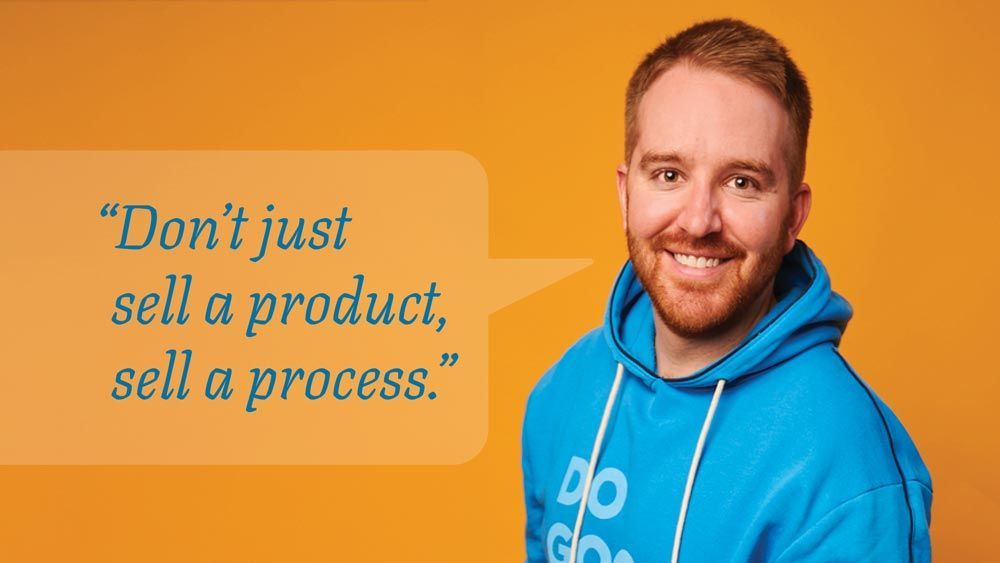How a Privacy Policy Builds Trust for Your Brand
Protecting your customer’s and visitor’s privacy builds trust, increases brand recognition, improves your business reputation, helps buyers move faster through your sales funnel, and helps you acquire brand evangelists.
By Donata Kalnenaite, Esq., CIPP
There is a good reason as to why being trustworthy is one of Aespire’s twelve strategies for purpose-driven brands and culture. Accountability and transparency are at the core of building trust with the customers and supporters of your organization. Building trust will increase the recognition of your brand, improve your reputation, move buyers faster through your sales funnel, and help you acquire brand evangelists.
How does having a privacy policy factor into the building of trust? A privacy policy will show your customers that you abide by the law, that you care about their privacy and that you are willing to stand by your commitments. All of these aspects will demonstrate that you are a company worth trusting.
A privacy policy is a document that on your website tells your customers what information you collect and what you do with that information. It informs people who you share their information with, and other information about your privacy practices.
Here’s the problem: Many website owners overlook posting a
privacy policy, believing that they’re not at risk of a lawsuit
or privacy violation. Think about the damage to your reputation
or the financial impact on your company.
It is interesting to note that a privacy policy is required by law for most websites that collect any personal information (e.g., name and email). You are collecting personal data on your site if you have a contact form or email newsletter sign up form. If your website invites people to signup for a lead generation campaign or uses marketing automation, you're collecting personal information.
Furthermore, using analytics services such as Google Analytics also lead to the collection of personal information. Analytics services even require you to have a privacy policy in their Terms of Service.
Consumers distrust companies that do not follow the law - there’s a reason why Facebook’s privacy abuse scandals have led to quite a bit of backlash for the company. Having a privacy policy on your website will show to your customers that you are aware of, and do follow the law. This practice will help establish you as a reputable company and will lead to customers trusting you more than your competition.
When was the last time you read a privacy policy before you clicked
that "Accept" button or uploaded your photos through FaceApp?
Protect your brand with an
auto-updating privacy policy .
A few years ago, a privacy policy was a document that no one except for lawyers and professors read, that is no longer the case. After consumer's information was sold, shared with untrustworthy third parties, or just posted on the dark web, consumers are a lot more interested in their privacy rights than ever before.
Consumers care about their privacy, are aware of their rights, and know their power. A privacy policy will show consumers that you care about protecting their privacy and that you are willing to take the time to ensure that their privacy is protected. This practice goes a long way towards demonstrating trust.
As a website owner or brand manager, you must be
concerned about privacy.
Just ask Facebook.
Lastly, having a privacy policy will help you build trust by showing that you are willing to stand by your commitments. A privacy policy sets forth what third parties you share the information with and helps you show the consumer that you do not share it with anyone who does not need it. A privacy policy also sets forth your obligations towards that private information and, by showing consumers that you follow those obligations, you will build trust.
A privacy policy is a great way to establish and build trust with consumers. It can even help you avoid sales delays. A study conducted by Cisco in 2019 found that 87% of respondents have sales delays due to customers’ data privacy concerns. The average length of the delay in the U.S. due to privacy concerns was 3.7 weeks. Having a privacy policy will help move your sales along with the trust of your customers.
Guest author Donata Kalnenaite, Esq., CIPP is the President of Termageddon, a privacy policy generator that automatically updates its policies when the laws change. She is a licensed attorney and certified information privacy professional. She often volunteers at the Illinois State Bar Association holding courses on the General Data Protection Regulation where she teaches other attorneys on the importance of privacy and what Privacy Policies should contain.
Do you have a hard time explaining what your company does or why your brand matters to people?
If you struggle to grow your business, you’re not alone. Aespire can help you create a clear message and brand that helps you grow your business. Contact us today for a consultation with a StoryBrand Certified Marketing Guide.
Get a Free Comprehensive Marketing Assessment
Stop hoping your marketing will sort itself out.
- Complete this free assessment in 15 minutes.
- Review your custom report (and schedule a 30-minute review) to diagnose what’s happening.
- Create an action plan to get your marketing back on track.








